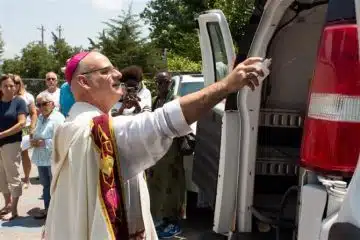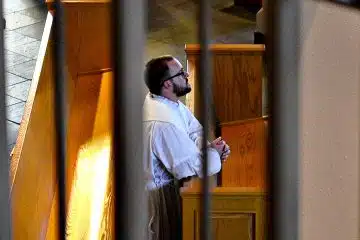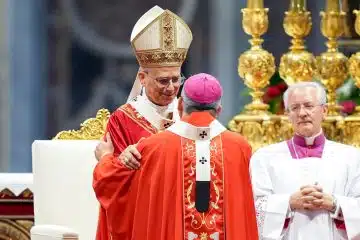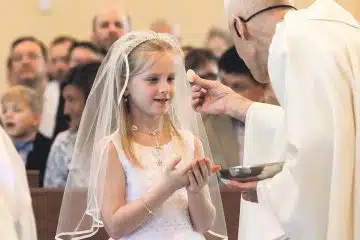The CT seeks interfaith relation stories

By John Stegeman
The Catholic Telegraph
Catholics are a diverse group. Many are well studied on the intricacies of the faith, many are only culturally Catholic and many fall somewhere in between. But what do Catholics know about the church’s relationship with other religions? The Catechism of the Catholic Church provides useful and authoritative, albeit brief, descriptions of these relationships.
With that in mind, The Catholic Telegraph is launching a multi-part series, scheduled to start next year, dedicated to examining the church’s relationship with other Christians, Jews, Muslims and other religious faiths in this archdiocese. These features will include the official church teachings, but they will also include stories of local cooperation, opportunities for evangelization and perhaps even a few stories of conversion.
For the sake of overview, here are some statements from the Catechism on the Catholic faith’s relationship with other religions.
The church and other Christians (CCC 838)
“The church knows that she is joined in many ways to the baptized who are honored by the name of Christian, but do not profess the Catholic faith in its entirety or have not preserved the unity or communion under the successor of Peter.’ Those ‘who believe in Christ and have been properly baptized are put in a certain, although imperfect,communion with the Catholic Church. With the Orthodox churches, this communion is so profound “that it lacks little to attain the fullness that would permit a common celebration of the Lord’s Eucharist.”
The church and the Jewish People (CCC 839)
When she delves into her own mystery, the church, the people of God in the New Covenant, discovers her link with the Jewish people, the first to hear the word of God. The Jewish faith, unlike other non-Christian religions, is already a response to God’s revelation in the Old Covenant. To the Jews “belong the sonship, the glory, the covenants, the giving of the law, the worship and the promises; to them belong the patriarchs, and of their race, according to the flesh, is the Christ;” for the gifts and the call of God are irrevocable.
The church and Islam (CCC 841)
“The plan of salvation also includes those who acknowledge the Creator, in the first place amongst whom as the Muslims; these profess to hold the faith of Abraham, and together with us they adore the one, merciful God, mankind’s judge on the last day.”
The church and other faiths (CCC 842)
“The Catholic Church recognizes in other religions that search, among shadows and images, for the God who is unknown yet near since he gives life and breath and all things and wants all men to be saved. Thus, the church considers all goodness and truth found in these religions as ‘a preparation for the Gospel and given by him who enlightens all men that they may at length have life.'”
If you are aware of any projects currently underway between parishes or other Catholic groups of the Archdiocese of Cincinnati and organizations of other faiths, please contact reporter John Stegeman at [email protected] or give him a call at 513-421-3131, ext. 2222.













